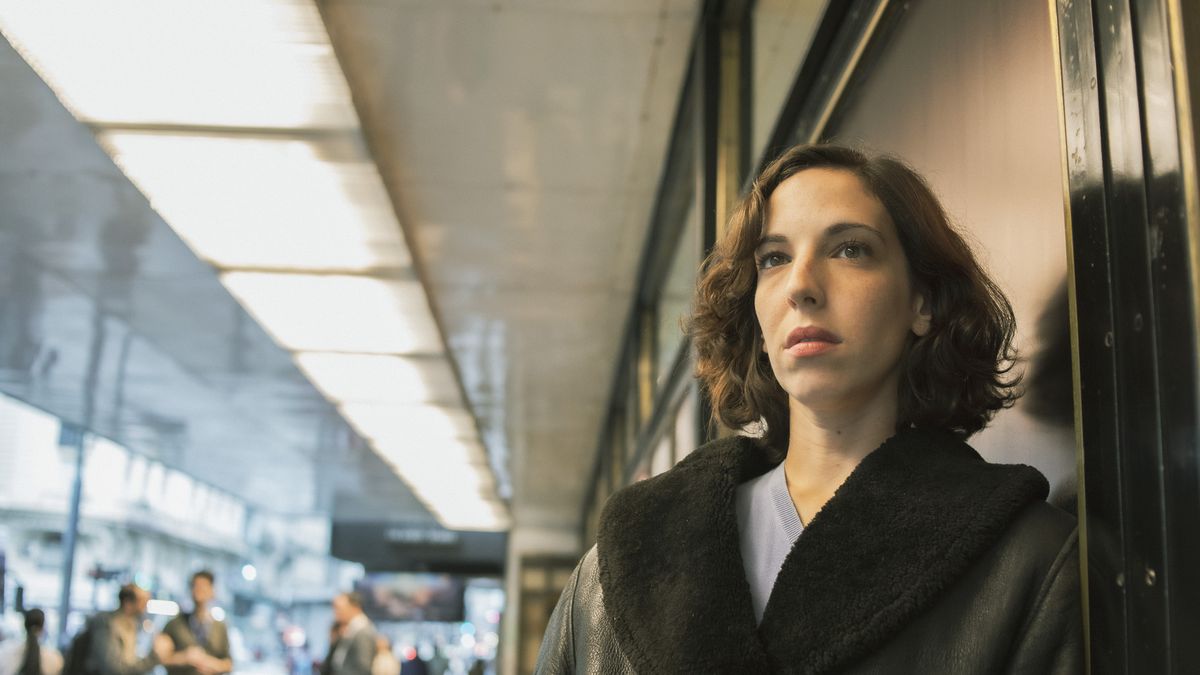A young American bows before the tomb of Hipolito Bouchard, the French privateer in the service of Argentina who in 1818 defeated the Spanish of Monterrey, occupying the town for six days. The boy pays tribute to him by depositing soil from that town, crowned by a flag of the California Republic, an organization that emerged in 1846, which lasted just 25 days. Shortly after, he becomes involved with a commune of artists who stage a trial of Kissinger and, among other things, practices polyamory. This is how the movie begins “Under orange”, which competes in the Avant-garde and Gender section of Bafici. Co-production that is announced as a “gender-fluid film,” comes with a manifesto, from which we transcribe some paragraphs:
“Our society legalizes its perversions and punishes what heals us.” “Bajo Naranja points to the contradiction of an increasingly deceptive world where the internet is real and the news is fake.” “We have been tired of tolerating the effects of heteronorm for a long time.” “Therefore, we must advocate not only for the separation of Church from State, but, more importantly, for the separation of truth from the system of binaries.”
Vera Spinetta: Not yet. For me, the most interesting thing about this work is the naive look of an American character on Argentine culture, who also falls in with those crazy people. Little by little the story also gets crazy, it becomes more and more bizarre. It is a special, different film, we will see what audience receives it.
Q: In part it seems improvised.
VS: We rehearsed a lot, we played, we proposed things, several scenes emerged that way. And sometimes the director, Michael Taylor-Jackson, said “here we are going to put a Godard-style shot, because it amuses us, because we love it.” Michael is quite particular, strict and at the same time very sweet, a good kid. This is his first work, a lot of responsibility.
Q: How did you know him?
VS: Because of the casting, which had its particularities. As it is a choral story, the performers had to understand each other, something that happened naturally. I came in, the next day Sofía Gala came in, we are friends; Gianluca Zonzini, then Bel Gatti, and so on. Michael was looking for someone to play the American, and we convinced him to play the role himself. He was very good.
Q.: You make up a character with a strong character, who wants to impose his opinion above the supposed equality that should reign in a commune.
V.S.: I try not to judge my characters, because otherwise I wouldn’t be able to embody them, but I’m calmer.
Q.: Let’s go to a more serious commune, that of the Italian-Argentine drama “Soledad”, by Agustina Macri.
V.S.: Very important for me, a huge challenge, because I knew the story of Soledad Rojas, who today is a symbol of Italian anarchists, it was also my first leading role, and a character film with a very large dramatic arc. It was a very long process, almost three years, I learned Italian, with Agustina we understood each other very well, she let me try things outside the script, which allowed a deep, vivid interpretation. I was crying with emotion, for doing something that motivated me, for having the possibility of going out and playing hard. Because that’s what our profession is, jumping into the abyss.
Q.: Good film, it’s a shame that they ignored the director because she had a last name.
VS: It was a controversial moment, things were heated. But she is great, very talented and passionate.
Q.: Since Marcelo Piñeyro with “The Widows of Thursdays”, you have had valuable directors such as Lerman, Piroyanski, Giralt. And also others, not so valuable.
VS: I was the youngest in that movie. Marcelo, who is very patient, taught me everything about the actor’s game with the camera, what happens between the actor and the camera when filming. It was beautiful to meet again, 13 years later, in the miniseries “The Kingdom.” I have felt cared for by everyone, and I have learned from everyone, even the “not so valuable” ones, because you can learn something from everyone. Furthermore, I never had to suffer anyone hostile in this environment.
Q.: We don’t talk about the many series and miniseries you have worked on.
VS: I also have good memories, especially of “Presentes”, a very nice series that brought to light important issues, such as discrimination. I remember that in the second season I was breastfeeding Heloísa, my first daughter.
Q: How many children do you have?
VS: Two. Heloísa, 9 years old, and Azul, who is a boy, 3 and a half.
Q.: What a unique name for a boy (as René was before).
VS: I was inspired by Miguel Abuelo’s son, who was a very good friend of my father, they both admired each other. He named his son Gato Azul. And you see him, and he’s blue. It’s not a common name, but there are several Blues now, starting with my Blue!
Source: Ambito
I am an author and journalist who has worked in the entertainment industry for over a decade. I currently work as a news editor at a major news website, and my focus is on covering the latest trends in entertainment. I also write occasional pieces for other outlets, and have authored two books about the entertainment industry.




